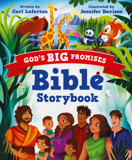
In an ideal world, I would be really-good-dad-Carl who answers his kids’ questions about Christian faith with seven things in mind.
In the real world, I’m flawed-but-trying-Carl and I score about 2 out of 7 most times I answer my kids’ questions about faith. That’s ok, because if my children (and yours) are to be saved, it will be by the grace of God through the work of his Spirit, not by the godliness of their parents through the brilliance of their answers.
With that in mind, here are the seven things that I hope and pray characterise the answers I do give my children for the “reason for the hope that we have” (1 Peter 3:15) as I pray they make it their own.
I have a colleague who, when asked a question, always answers, “Thanks—that’s a great question.” He says it’s to play for time; I think it’s mainly because he’s godly and gentle. Our children need to know that we welcome their questions—if they don’t, they’ll ask them of someone else.
If at all possible we need to stop what we are doing, give them our full attention, smile, and thank them for asking us. Seize the moment before it passes (and it passes fast with younger children). After all, there are very few moments where there is something more important or exciting to do than sow gospel truth into a little heart.

92 foundational Bible stories, faithfully told and beautifully illustrated, which point to the one big story of the Bible—God making and keeping his promises.
The gospel is good news. Ideally, we will always major on its goodness, focusing in our answers more on how great Jesus is than how bad the world is or how the child’s thinking is wrong. So in answer to “Why wouldn’t God let all people go to heaven?” we would talk about how wonderful it is that anyone can go to heaven, how Jesus loves people so much he died for them, before we talk about human sinfulness, the futility of the fallen mind, and so on.
Whatever else my children leave a conversation about Christianity with, I want them to be thinking, “Jesus is greater than I’d realised.”
We need to guard our kids against thinking “This is true because dad/mum says it is” and encourage them to think “This is true because God says in the Bible that it is”. He is the authority; not us. So, where we can, let’s be taking our kids to the Scriptures, so that we often hear ourselves saying, “God says in the Bible that…”
Unless you are a walking concordance, this may mean having follow-up conversations, like: “Do you remember we were talking earlier about what God’s kingdom is like? Well, I wanted to show you some super-exciting sentences from the Bible, from Revelation 22, that tells us a bit about it. Can I read them to you?”
Kids love stories. In fact, humans love stories. As Christians we are part of the greatest story ever told. So it’s no surprise that God’s word is given to us as a (true) story, rather than as a set of propositions. But how often do we give our kids (and each other) statements of truth rather than stories that reveal truth?
Perhaps next time a child asks, “How do we know God is real?” or “How do we know our God is the true God?” instead of recounting John 14:6, we could tell the story of Elijah and prophets of Baal on Mount Carmel, and God sending fire to prove who he is; and of the empty tomb as Jesus rose to prove who he is. (And then maybe share John 14:6, too.)
The humbling truth is: we can’t save our kids. The wonderful truth is: the Spirit can. So, we pray as we answer, and we pray after the conversation ends.
Sometimes, I have answered a simple question from a four-year-old with a five-minute monologue. I have gone complex and we have considered an answer from a biblical theological angle and with a systematic framework, to the extent that by the end I haven’t really understood my own answer and neither has my kid. I have given truth, but in a way that is indigestible. I’ve forgotten that they can always come back and ask another question.
Equally, though, I sometimes make the opposite and equal error, and offer far too little. Little minds can think hard, and I sometimes think that we underestimate what they can chew on. Obviously it depends on the age and character of our kids, but it is worth thinking hard about where you’re answering with too much or too little.
“What do you think?” “Did you find that helpful?” “I’d love to hear another question if you have one” “Have I said anything that didn’t make much sense?” “How would you answer your question if it pops into your head again tomorrow?” Let’s beware turning what should be a conversation into a lecture and encourage our kids to think for themselves rather than just listen to us.
Here’s the non-negotiable, and the one I score lowest on. The best answer needs the Holy Spirit to be at work if it is to change a child’s heart. The worst answer, if it’s faithful, can be used by the Spirit to go to work in a child. The humbling truth is: we can’t save our kids. The wonderful truth is: the Spirit can. So, we pray as we answer, and we pray after the conversation ends. Our prayers show our reliance on the God who loves our children even more than us.
Truth is, virtually every question our kids ask is in fact a question about Christianity. “Why do the leaves turn brown?” is an opportunity not only to talk about God who invented trees and seasons (wow). “Why are we stuck in traffic?” is a great moment to talk about God’s sovereignty over every detail, and what he might be teaching us in this moment. Some of my best conversations with my kids about the gospel have come as a result of questions that, on the face of it, had nothing much to do with the gospel. And—even when the real me only scores 2 out of 7 as I answer—can there be anything more thrilling than helping a young heart to see how great their heavenly Father is?
Kids today are faced with a huge range of different views on who God is (or isn't). How can they be sure who's got it right? The God Contest, the latest in our Tales That Tell The Truth series, retells two extraordinary events in history when the God of the Bible proved himself to be the one true God. For younger kids, God's Big Promises Bible Storybook is a faithful foundation to start with.